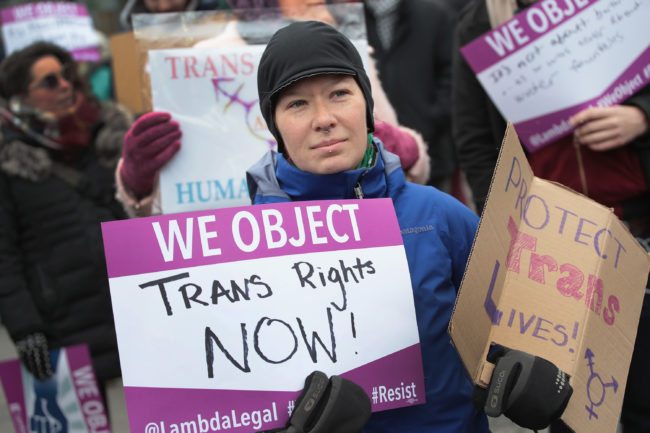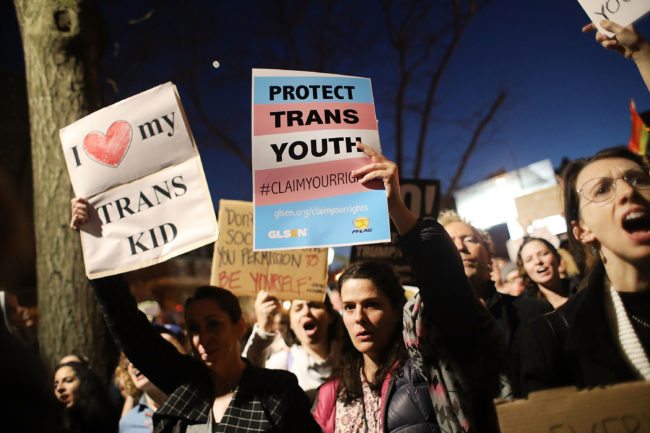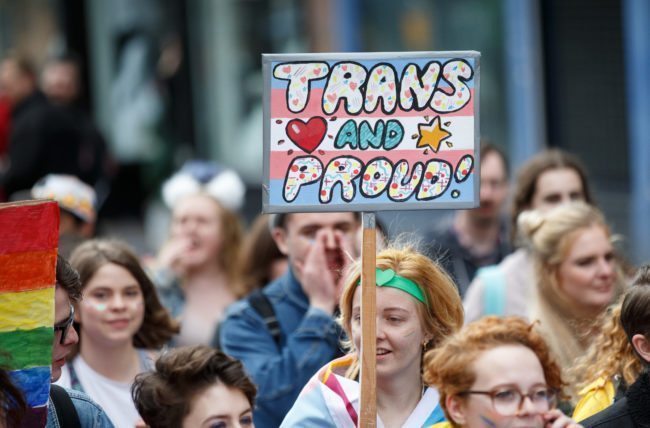Swedish parliament makes historic decision to pay forcibly sterilised trans people $25,000

The pin flags are replaced with Swedish flags to mark Sweden’s National Day on day three of the Nordea Masters at the PGA Sweden National on June 6, 2015 in Malmo, Sweden. (Photo by Harry Engels/Getty Images)
Sweden has become the first country to offer compensation to transgender people who were forcibly sterilised, with a vote passing in parliament earlier this week.
In 2013, Sweden ended a law which made forced sterilisation compulsory for trans people in order for the state to recognise their gender identity.
Since the law was repealed, activists have since been campaigning for the approximately 700 people affected to be compensated.
Earlier this week, the Swedish parliament voted to pay 225,000 SEK, ($25,000) to each trans person affected during the 41 years the law was in place.
Sweden’s Health Minister Gabriel Wilkström stated in 2017 that the government intended to introduce the bill, which is the first of its kind in the world.

(Getty)
The Swedish Federation for Lesbian, Gay, Bisexual, Transgender and Queer Rights (RFSL) welcomed the successful vote in parliament.
“We have strived for this since 2013 when the requirement of sterilization to change one’s legal gender was abolished,” said Emelie Mire Åsell, the trans and intersex spokesperson of the group.
Åsell continued: “Money can’t undo the harm of unwillingly losing your reproductive abilities, but the monetary compensation is an important step for the state to make amends to all those subjected to this treatment.”

(Getty)
Swedish law forced transgender people into sterilisation if they wanted their gender identity to be recognised by authorities between 1972 and 2013.
It specified that people who wanted to change legal gender had to be “lacking the ability to procreate”.
This meant that hundreds of transgender people were forced to undergo surgery to prevent them from ever having children.
The court then ruled that this practice was wrong and violated European Human Rights.
“The demand for sterilisation that existed previously laid out a vision from which today’s society wishes to distance itself and the government believes it was wrong to demand it,” Health Minister Wilkström said in 2017.
After the country deemed the practice illegitimate over 150 transgender people in the country banded together to call for an official apology and compensation totalling nearly 5 million.

(Getty)
As of 2018, 16 European countries have a requirement that transgender people be sterilised prior to changing their legal gender.
A person’s legal gender appears on most official forms of identification and bureaucracy, including birth certificates, driving licences, payslips and marriage licences.
In 2017, the European Court of Human Rights ruled that requiring sterilisation of individuals seeking a change in their legal gender recognition violates human rights.
After this ruling, the government of Finland debated repealing their law in light of this ruling.
However, despite an international campaign by Amnesty International, Finland opted to keep their law.

